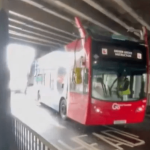Donald Trump has officially revived his controversial travel ban, issuing a fresh proclamation that bars entry into the United States from 12 countries, with additional restrictions applied to seven more.
Signed on Wednesday, the Trump travel ban 2025 is set to take effect this coming Monday, marking a sharp return to the hardline immigration stance from Trump’s first presidential term.
Controversial immigration policy reinstated as Trump vows to ‘protect Americans’
In typical fashion, the US President didn’t mince words: “We don’t want ’em. Very simply, we cannot have open migration from any country where we cannot safely and reliably vet and screen.”
The Trump travel ban 2025 has sparked immediate debate, echoing the backlash from his initial executive order back in 2017. At the time, it was dubbed a “Muslim Ban” by critics, but it was later upheld by the US Supreme Court in 2018 after multiple revisions.
Former US President Joe Biden repealed that policy in 2021, calling it: “A stain on our national conscience.” But Trump has now doubled down.
Countries Affected by Trump Travel Ban 2025
Full travel ban enforced on the following 12 nations:
- Afghanistan
- Burma
- Chad
- Republic of the Congo
- Equatorial Guinea
- Eritrea
- Haiti
- Iran
- Libya
- Somalia
- Sudan
- Yemen
Heightened visa restrictions imposed on:
- Burundi
- Cuba
- Laos
- Sierra Leone
- Togo
- Turkmenistan
- Venezuela
Reiterating the justification behind the Trump travel ban 2025, the Republican presidential candidate stated: “During my first administration, I restricted the entry of foreign nationals into the United States, which successfully prevented national security threats from reaching our borders.”
He continued by emphasising the importance of safeguarding American citizens: “The United States must be vigilant during the visa-issuance process to ensure that those aliens approved for admission… do not intend to harm Americans or our national interests.”
This statement has once again ignited heated political debate over the balance between national security and immigration rights.
Interestingly, Trump has exempted athletes, their support teams, and immediate families in anticipation of the 2028 Los Angeles Olympics. This carve-out has been interpreted as an attempt to avoid diplomatic fallout in the sports arena.
He also left room for changes: “The list is subject to revision.” That means countries may be added or removed based on their security cooperation and vetting improvements.
The Trump travel ban 2025 is expected to feature heavily in the upcoming election debates. Immigration continues to be a cornerstone of Trump’s platform, and this move firmly re-establishes his stance.
With critics labelling the policy discriminatory and supporters hailing it as necessary for protection, the issue is poised to polarise American voters once again.






